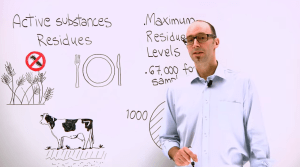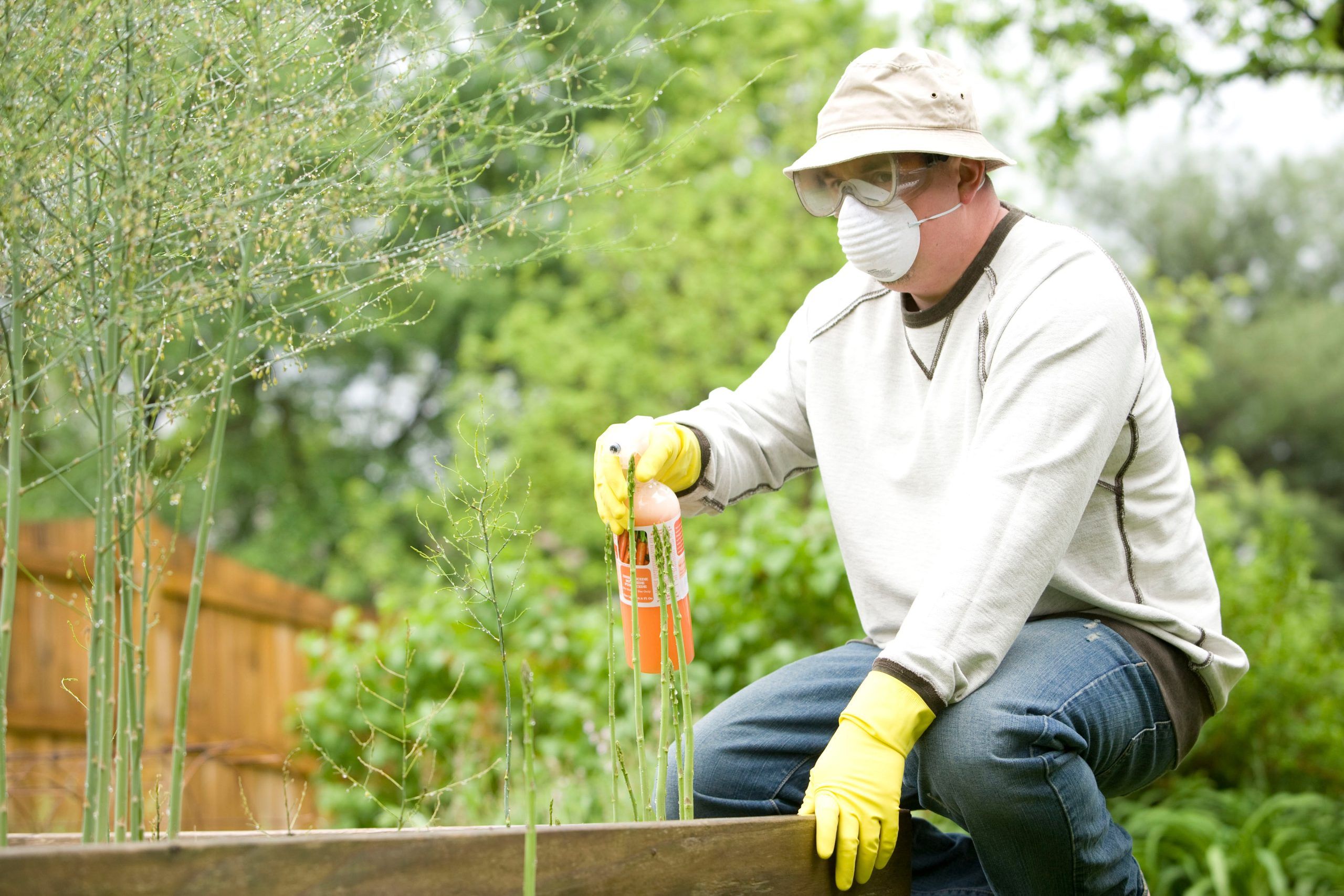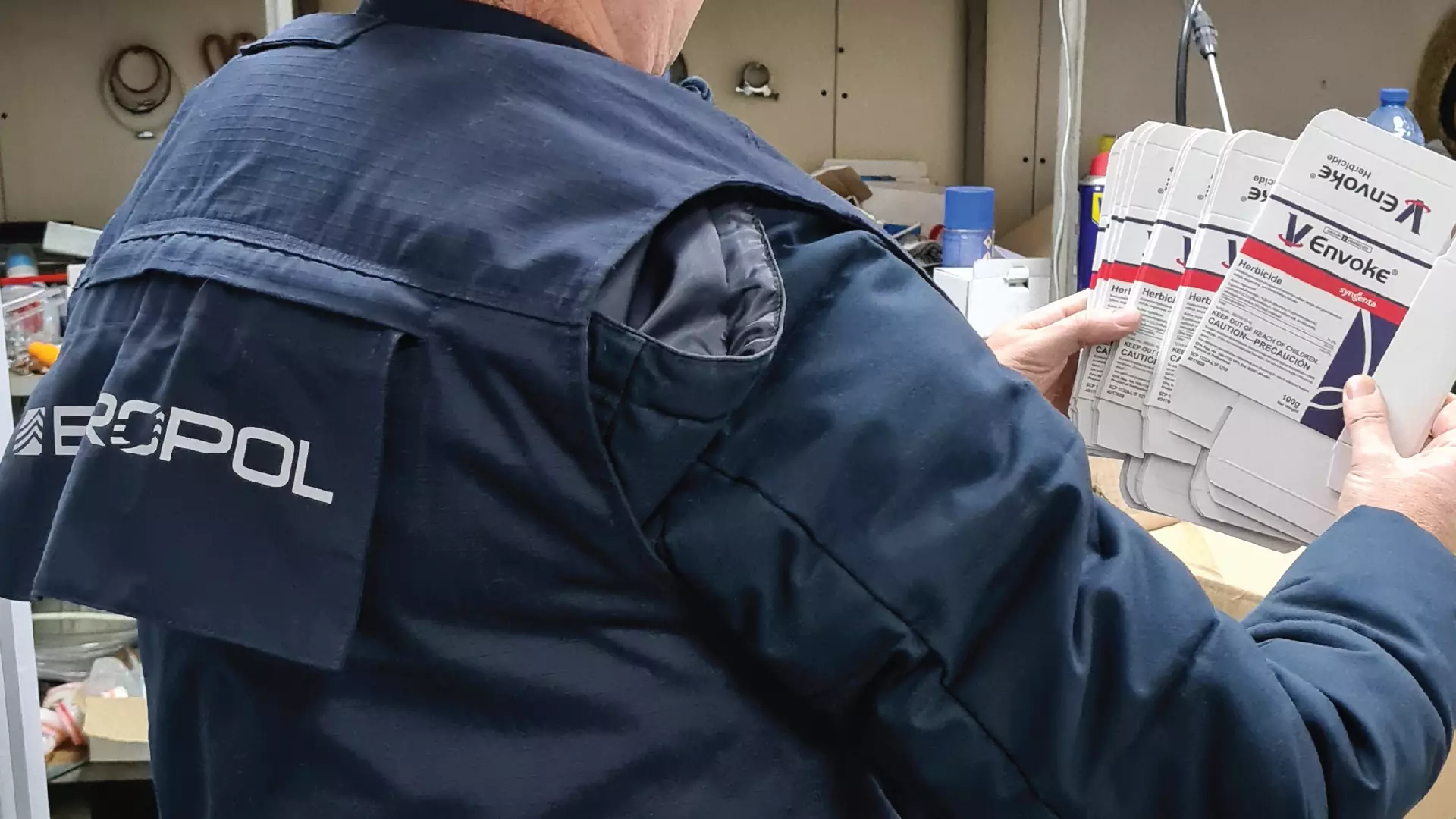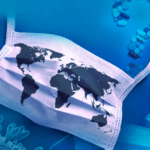Operation Silver Axe VII, coordinated by Europol, took place between 25 January and 25 April 2022 and involved law enforcement authorities from 31 countries (25 EU Member States and six third party countries). The European Union Intellectual Property Office (EUIPO), the European Anti-Fraud Office (OLAF), the European Commission’s DG SANTE, CropLife Europe and CropLife International supported the operation.
The seventh edition of Silver Axe, Europol’s annual operation targeting illegal pesticides, identified the new trends emerging on the EU black market for plant protection products. The operational activities of Silver Axe VII focused on ports, airports and other entry points where the import and export of illegal and counterfeit pesticides could be detected. These actions led to ten arrests, the seizure of 1 150 tons of illegal and counterfeit pesticides and the targeting of a factory where pesticides were being counterfeited.

What are pesticides and how do they get into our food?
|
During Silver Axe VII, authorities detected an increase of the trafficking of illegal pesticides in the south of Europe and the Black Sea area. The number of cases of illegal pesticides, sourced in Turkey, has increased sharply during Silver Axe VII. However, China remains the number one source country. There is also an increase in the seizures of smaller shipments (up to 10 litres/kilograms). The trafficking of these smaller consignments has increased over the years. In addition to border checks, authorities have also been monitoring online shops, which provide a physical address for the collection of products purchased online. Although the trafficking of herbicide, insecticide and fungicide containing banned substances remains steady, the operation also revealed that the counterfeiting of commonly used brands for these products is now growing.
On the rise: counterfeit products made in the EU
The increase in seizures of production equipment and raw materials shipped to Europe suggests a rise in counterfeiting activities within the EU. Law enforcement agencies in EU Member States are now detecting these counterfeiting operations on EU soil more often. As part of this, they have detected a number of modus operandi. The first is the import of almost finalised products in containers resembling well-known brands. Once imported, they need only to be labelled before going on the black market. The second is the import of illegal ingredients for the production of pesticides. To lower the chances of detection, the chemicals are only used at the final production stage at the locations where the packaging is also being counterfeited. During Operation Silver Axe VII the Bulgarian authorities targeted one such location, in a rare operation targeting a production facility. During the operation, officers seized counterfeit packaging materials and illegal pesticides, which led to the opening of a criminal case.
Another modus operandi is the misuse of the parallel trading system, which eases the approval procedures of pesticides sold within the EU. As part of this system, a plant protection product that is authorised in one Member State (Member State of origin) may, subject to granting a parallel trade permit, be introduced, placed on the market or used in another Member State. Some criminals abuse this system by introducing illegally produced plant protection products to a Member State, fraudulently claiming that they have already been approved in a different Member State and thereby removing the need for further approvals.

New EU rules prepare the ground for more use of organic and waste-based fertilisers
|
4 921 tonnes – Operation Silver Axe’s total seizures
Silver Axe was initially developed to respond in a coordinated way to the dangerous trafficking of illegal pesticides. The efforts of the public and private sector have led to the seizure of a total of 4 921 tonnes of illegal pesticides during the past six Silver Axe operations. Europol coordinated the operation, facilitated the information exchange and provided operational and strategic analytical support.
Participating countries
EU Member States: Austria, Belgium, Bulgaria, Croatia, Czechia, Denmark, Estonia, France, Finland, Germany, Greece, Hungary, Ireland, Italy, Latvia, Lithuania, Luxembourg, Malta, the Netherlands, Poland, Portugal, Romania, Slovak Republic, Slovenia, Spain.
Third party countries: Brazil, Colombia, Ukraine, the United Kingdom, Norway and the United States.
EU bodies and international organisations: Intellectual Property Office (EUIPO), the European Anti-Fraud Office (OLAF), the European Commission’s DG SANTE, CropLife Europe and CropLife International.
More information: Europol – Press release







Leave a Reply